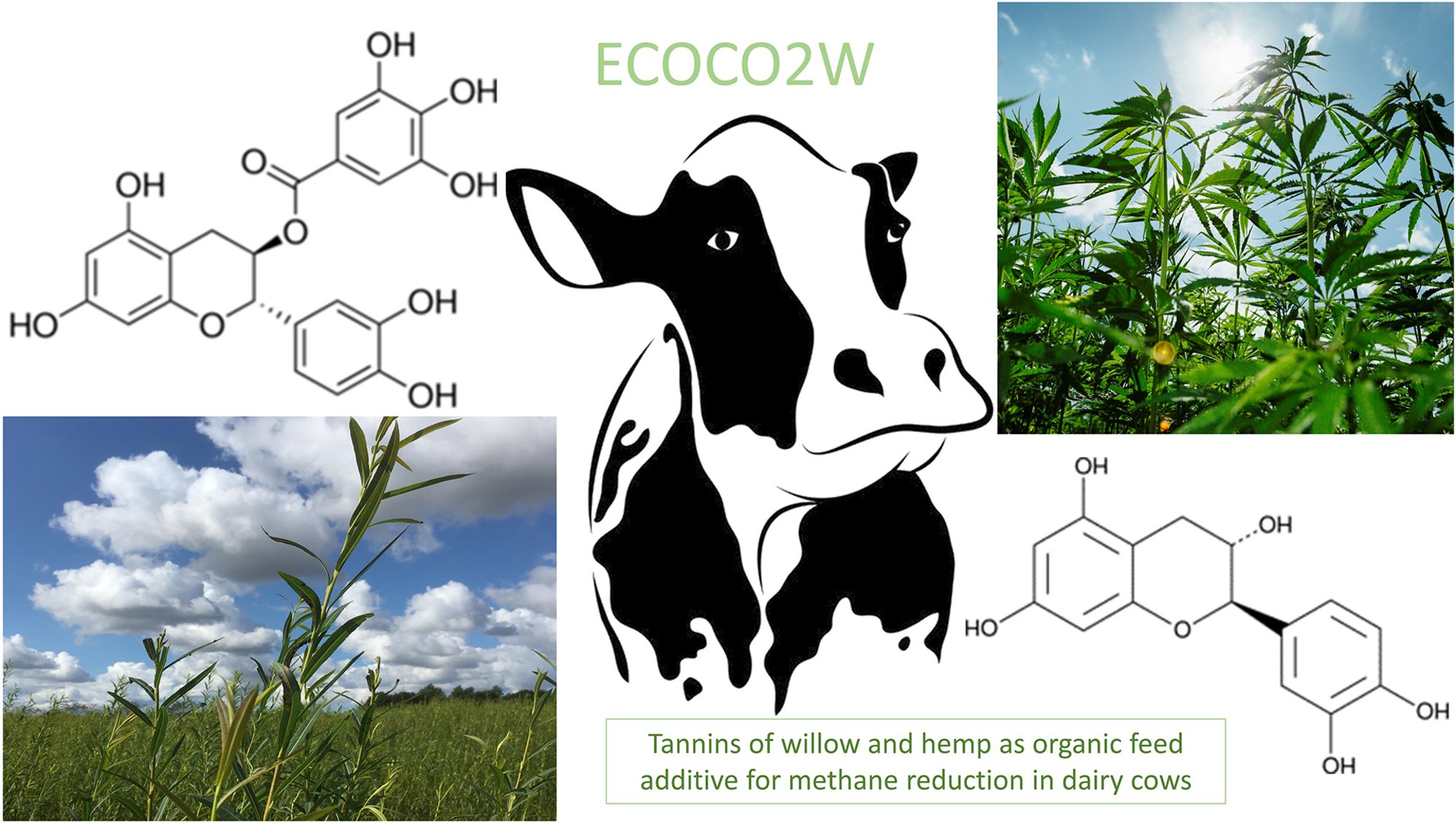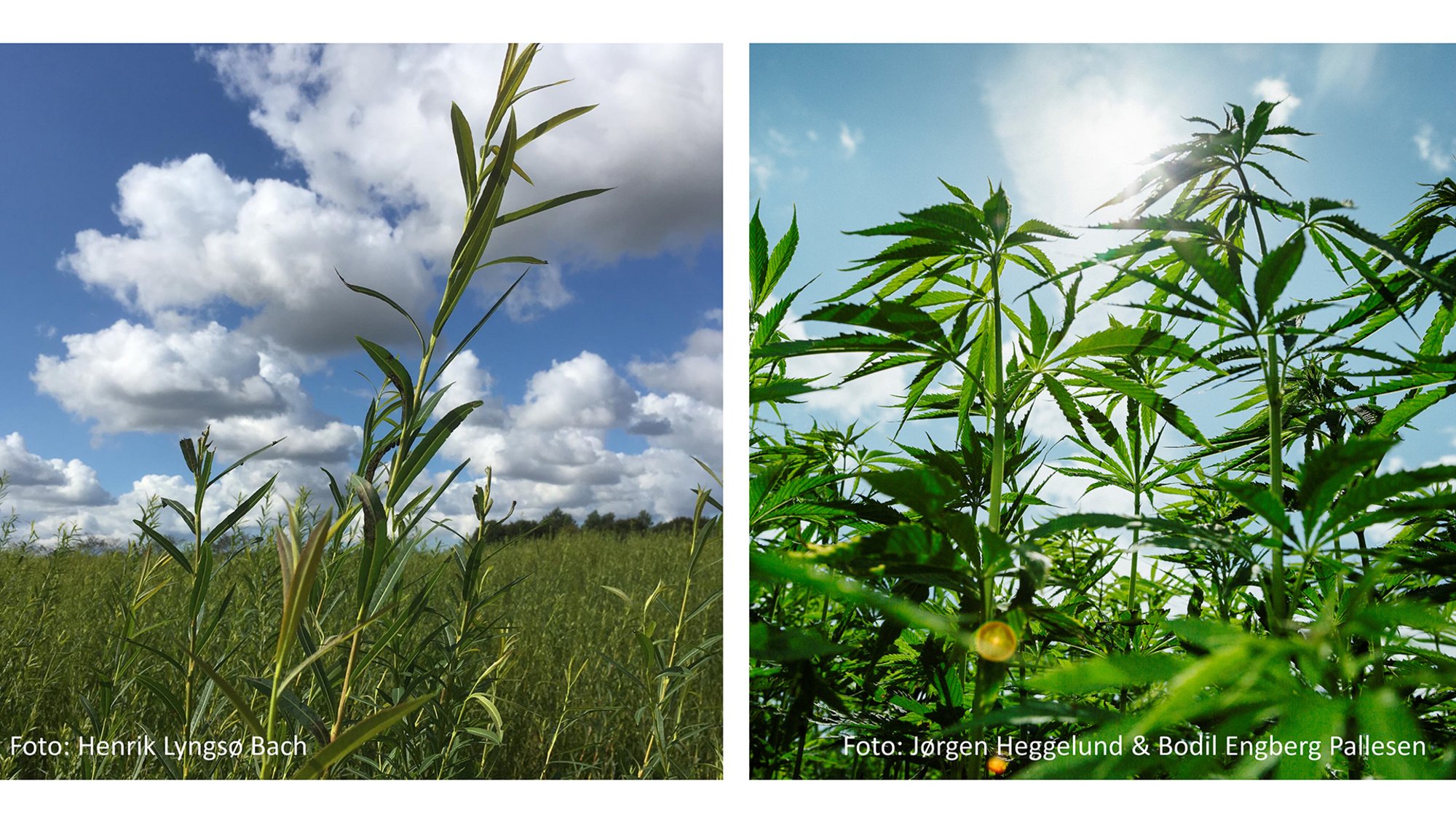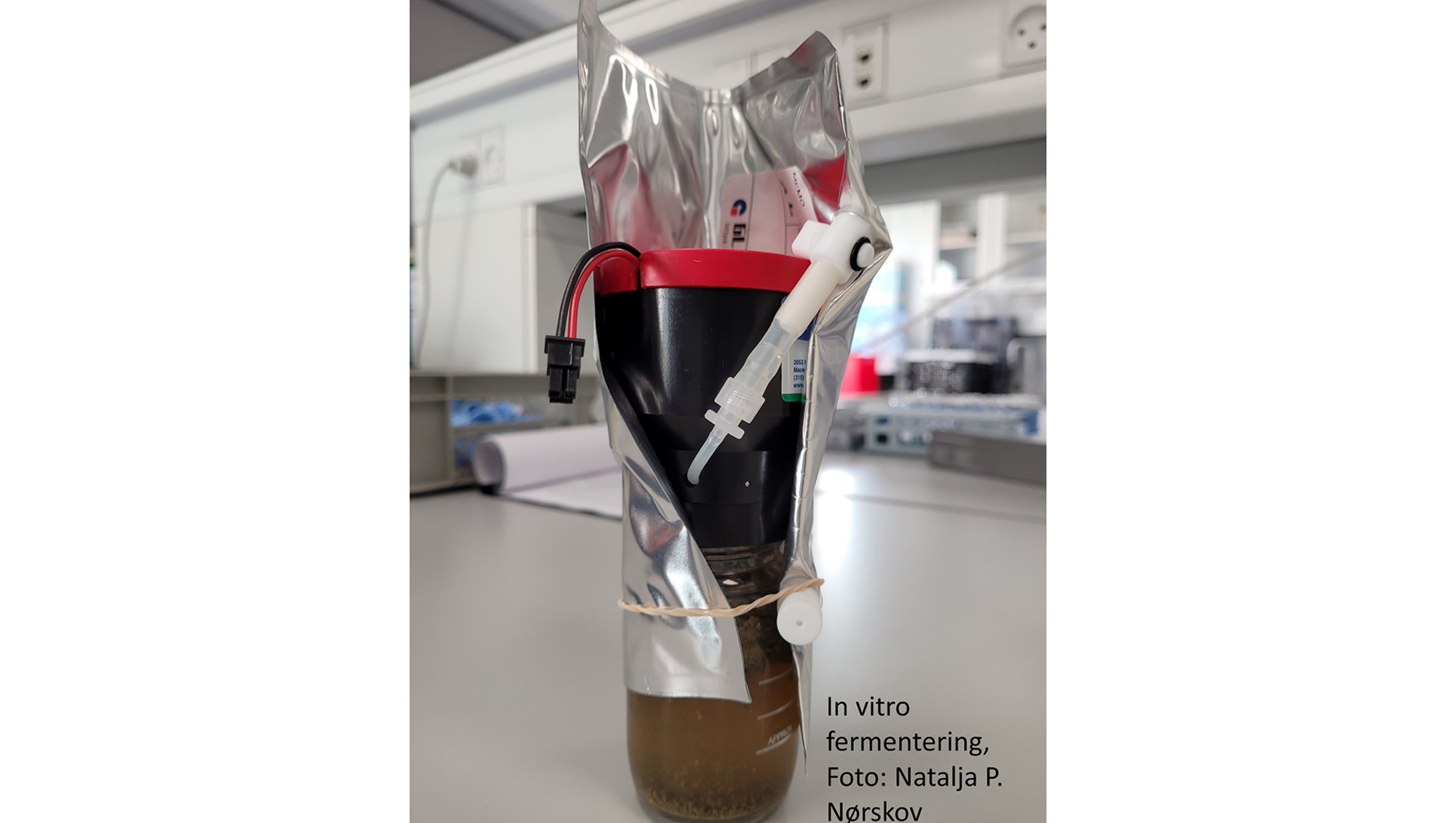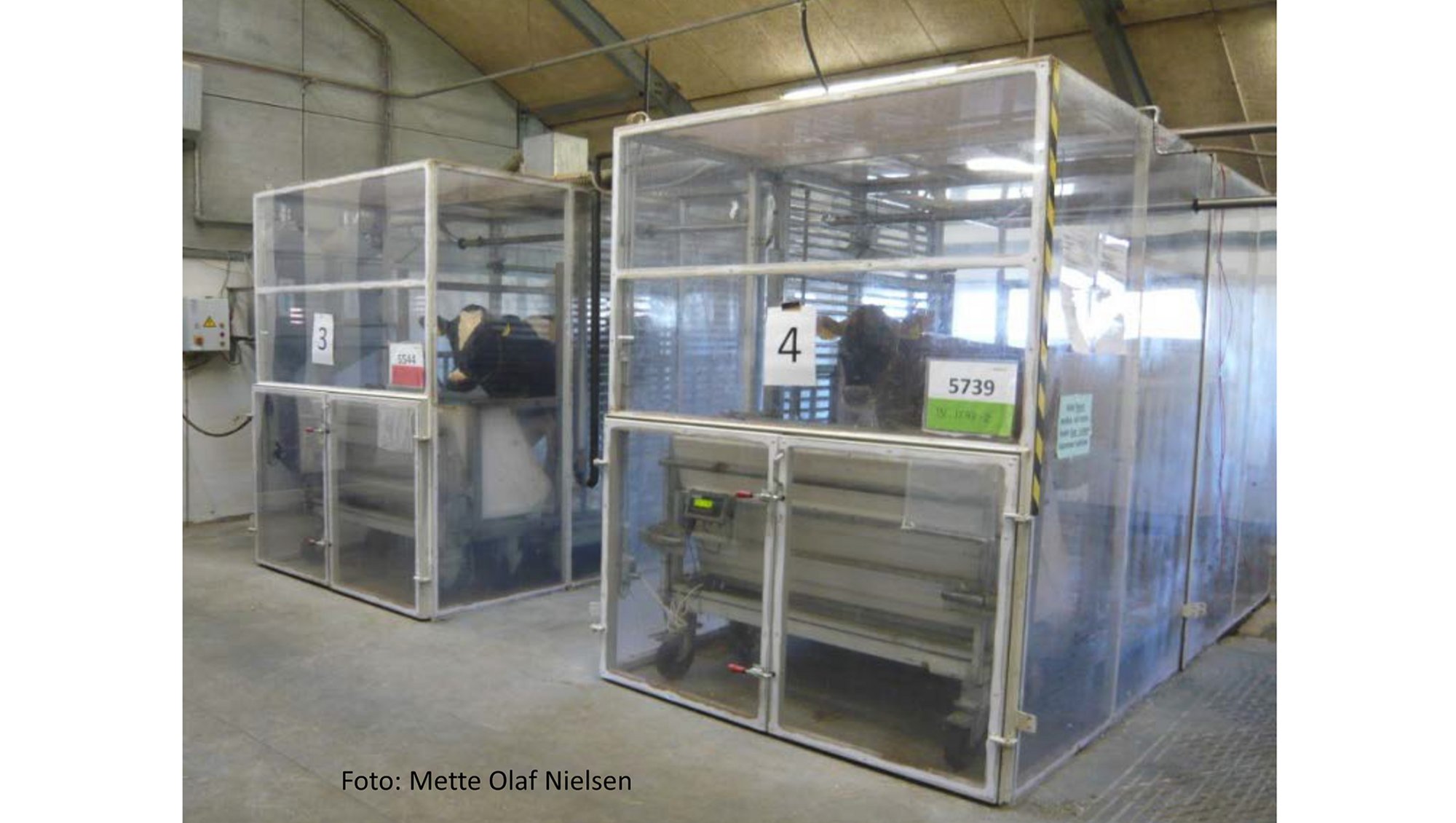ECOCO2W
- Less methane from cows
Danish agriculture has an objective of climate neutral production in 2050. Methane is a greenhouse gas that is approx. 28 times more powerful than CO2 and accounts for approx. 35% of the agricultural sector’s loss of CO2 Eq. This is due, among other things, to the loss of enteric methane (from rumination), as a single cow can emit approx. 600 L/day, but both methane and nitrogen are also lost via urine and faeces.
Organic farmers are not allowed to use chemical products such as ’3NOP’ (3-Nitrooxypropanol) in feed for ruminants to inhibit methane production. The project is related to ongoing research on seaweeds, some of seaweed species contain phloro-tannins which may have an effect. In addition to the challenge of establishing seaweed farms and obtaining sufficient quantities quickly enough, the high content of bromoform in some seaweed species is a problem. That is why there is a need for other organic alternatives.
The purpose of ECOCO2W
The primary purpose of ECOCO2W is to develop a new feed additive as an important climate initiative for organic cattle producers to reduce the enteric methane production in dairy cows with 30%. This is expected to be achieved by adding plant extracts from organically grown willow and hemp, both of which are plants with a high content of condensed tannins that inhibit methanogenic microorganisms. The products are screened in vitro (simulation of rumen gas production), after which the most effective extracts/products are used in cow feeding trials in repiration chambers – and later on with a small group of cows under practical conditions.
The project step by step
- Screening of willow- and hemp varieties to find the best possible yield of condensed tannins from varieties that are suitable for cultivation and biorefining in DK
- Test of mechanic/thermic extraction and, possibly, drying/pelleting/crushing of residual product / bedding product
- Screening of plant extracts in vitro, after which the formation of methane is measured compared to control. The most effective plant extracts are selected for feeding trials with dairy cows
- Feeding trials with fistulated cows with/without the most effective feed additives and subsequently in a larger herd.
Project leader
Natalja P. Nørskov
Deparment of Animal Science - ANIS Nutrition, Aarhus University
Tlf: +4530563085
Mail: natalja.norskov@anis.au.dk
Project partners
Henrik Lyngsø Bach, Ny Vraa Bioenergy I/S
Jørgen Heggelund, Bio2Products
Arne Grønkjær Hansen, Innovation Centre for Organic Farming P/S
Martin Øvli Kristensen, Danish Agriculture & Food Council SEGES P/S
Arne Munk, Innovation Centre for Organic Farming P/S
Bodil Engberg Pallesen, Technological Institute
Peter Lund, Aarhus University
Mette Olaf Nielsen, Aarhus University



